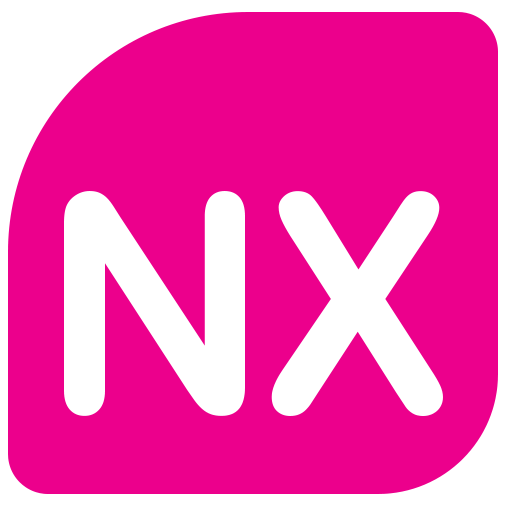Selecting the right investment website script determines your platform’s success trajectory. With dozens of options claiming superiority, meaningful comparison becomes essential for informed decisions. This comprehensive investment website script comparison evaluates critical factors including features, security, scalability, pricing, and support quality to guide entrepreneurs toward optimal choices.
Understanding Different Types of Investment Scripts
Investment website scripts serve various niches with specialized features. HYIP scripts focus on high-yield programs with automated ROI calculations and referral systems. Cryptocurrency investment platforms emphasize blockchain integration and smart contract automation. Peer-to-peer lending scripts facilitate direct borrower-lender connections with credit assessment tools.
General investment platforms offer broader flexibility supporting multiple investment types. These versatile solutions accommodate stocks, bonds, real estate tokenization, and alternative assets within single platforms. Understanding your business model determines which script category best serves your objectives.
Niche specialization versus versatility presents tradeoffs. Specialized HYIP scripts offer deep functionality for specific use cases but limit operational flexibility. General platforms provide adaptability but may lack depth in particular areas. Matching script capabilities to business requirements optimizes both launch efficiency and long-term satisfaction.
Feature Set Comparison Across Leading Scripts
Core functionality varies significantly between investment scripts. All quality platforms include user registration, investment plan management, and payment processing. Differences emerge in automation sophistication, reporting depth, and advanced capabilities like cryptocurrency support or DeFi integration.
Referral system complexity separates basic from advanced scripts. Simple two-level referral tracking suffices for some businesses while others require unlimited multi-level marketing with complex commission structures. According to network marketing research, platforms supporting five or more referral levels generate 40% more organic growth than limited-level alternatives.
Administrative control depth impacts operational efficiency. Comprehensive admin panels enabling user management, financial oversight, content customization, and system configuration without developer assistance reduce ongoing operational costs. Limited admin capabilities create dependencies on technical support for routine tasks.
Security Architecture Evaluation
Security implementations range from basic to enterprise-grade protection. Minimum acceptable security includes SSL encryption, SQL injection prevention, and password hashing. Advanced platforms add two-factor authentication, DDoS protection, smart contract auditing, and penetration testing documentation.
Compliance tool integration addresses regulatory requirements. KYC and AML features built into scripts simplify identity verification and transaction monitoring. Platforms lacking these capabilities require expensive third-party integrations or manual processes creating compliance bottlenecks.
Update frequency indicates ongoing security commitment. Scripts receiving quarterly security patches demonstrate active development teams monitoring vulnerability databases. Abandoned scripts become security liabilities as unpatched vulnerabilities accumulate, exposing platforms to preventable attacks.
Performance and Scalability Considerations
Database architecture determines scalability limits. Well-designed schemas handle growth from hundreds to hundreds of thousands of users without performance degradation. Poorly optimized databases require expensive rewrites when platforms reach modest success thresholds.
Caching implementation affects user experience quality. Advanced investment website scripts implement multi-layer caching reducing page load times from seconds to milliseconds. According to web performance research, every 100-millisecond delay decreases conversion rates by 7%.
Cloud compatibility enables cost-effective scaling. Scripts designed for cloud environments leverage auto-scaling, load balancing, and content delivery networks. Legacy applications built for single-server hosting require expensive infrastructure migrations supporting growth.
Technology Stack Comparison
PHP remains the dominant language for investment scripts due to mature frameworks like Laravel and extensive developer availability. Python alternatives offer advantages for platforms requiring complex financial calculations or machine learning integration. Node.js solutions excel in real-time applications with constant data updates.
Framework choices impact development velocity and maintenance costs. Modern frameworks provide security features, testing tools, and community support simplifying ongoing development. Custom-coded scripts without framework foundations require more extensive maintenance as platforms evolve.
Database selection affects query performance and data integrity. MySQL dominates due to familiarity and hosting availability. PostgreSQL offers superior data integrity features important for financial applications. NoSQL databases like MongoDB suit platforms with rapidly evolving data structures.
Pricing Model Analysis
One-time perpetual licenses offer long-term value for established businesses planning extended operations. Initial costs range from $299 to $1,999 depending on feature completeness and vendor reputation. These models eliminate ongoing subscription expenses improving long-term ROI.
Subscription models charge monthly or annual fees for continued access and updates. While lower upfront costs appeal to startups, cumulative expenses often exceed perpetual licenses within 12-24 months. Subscription platforms risk service interruption if payments lapse during cash flow challenges.
Hidden costs undermine advertised pricing. Some vendors charge separately for cryptocurrency integration, premium templates, priority support, or feature updates. Comprehensive cost analysis including all necessary components enables accurate budget planning and prevents surprise expenses.
Customization Flexibility and Branding
White-label capabilities determine brand ownership depth. Quality scripts remove all vendor branding allowing complete customization with operator logos, color schemes, and typography. Limited customization options result in generic appearances that fail to differentiate platforms from competitors.
Source code access enables unlimited modifications. Encrypted scripts prevent customization beyond provided settings, creating vendor dependencies for feature additions or workflow modifications. Open-source or unencrypted code provides maximum flexibility for businesses with development resources.
Template variety accelerates professional launches. Multiple pre-designed themes spanning different visual styles provide starting points requiring minimal customization. Single-template scripts necessitate expensive custom design projects delaying launches.
Support Quality and Documentation Assessment
Documentation comprehensiveness impacts implementation success. Quality vendors provide detailed setup guides, feature explanations, API documentation, and troubleshooting resources enabling self-service problem resolution. Inadequate documentation creates dependencies on support teams for routine tasks.
Support channel availability affects operational continuity. Email-only support proves insufficient for urgent issues requiring immediate resolution. Live chat, phone support, and ticket systems with guaranteed response times provide necessary assistance levels for professional operations.
Community resources supplement official support. Active user forums, knowledge bases, and video tutorial libraries provide peer assistance and best practice sharing. Vibrant communities indicate healthy products with satisfied user bases.
Payment Gateway Integration Comparison
Gateway diversity determines market accessibility. Scripts supporting only PayPal and Stripe exclude users in regions where these processors don’t operate. Comprehensive gateway support including Perfect Money, cryptocurrency wallets, bank transfers, and regional processors maximizes addressable markets.
Cryptocurrency capabilities range from absent to sophisticated. Basic implementations accept Bitcoin deposits manually credited by administrators. Advanced platforms include automated multi-currency cryptocurrency processing, smart contract integration, and DeFi protocol connections.
Payment automation sophistication impacts operational efficiency. Manual deposit verification wastes hours daily while frustrating investors waiting for account credits. Automated detection systems monitoring payment gateways continuously credit accounts within minutes of transaction confirmation.
Mobile Experience and Progressive Web Apps
Mobile optimization quality varies dramatically between scripts. Responsive designs adapt layouts to different screen sizes but may compromise functionality on small screens. Mobile-first designs prioritize smartphone experiences ensuring full feature access without desktop requirements.
Progressive Web App (PWA) capabilities bridge web and native applications. PWA-enabled investment platforms allow home screen installation, push notifications, and offline functionality without expensive iOS and Android app development.
Loading speed on mobile networks affects user satisfaction and conversion. Scripts optimized for 3G and 4G connections maintain usability in regions with limited internet infrastructure. Unoptimized platforms frustrate users in developing markets representing substantial growth opportunities.
Cryptocurrency and Blockchain Feature Comparison
Blockchain integration depth ranges from superficial to comprehensive. Basic implementations accept cryptocurrency payments processed like traditional transactions. Advanced platforms leverage blockchain for transparent payout automation, immutable audit trails, and decentralized governance.
Smart contract sophistication determines automation potential and transparency. Simple contracts handle basic fund escrow while advanced implementations automate complex investment logic including compound interest calculations, multi-party payouts, and conditional distributions.
DeFi protocol integration creates competitive advantages. Scripts connecting to yield farming, liquidity pools, and staking mechanisms offer earning opportunities beyond traditional investment plans. According to DeFi analytics, platforms with diverse earning mechanisms retain users 3.5 times longer than single-strategy alternatives.
Compliance and Legal Feature Evaluation
KYC and AML tool sophistication impacts regulatory compliance efficiency. Advanced systems include document verification, facial recognition, sanctions screening, and ongoing monitoring. Basic implementations simply collect documents without validation, creating compliance gaps.
Reporting automation simplifies regulatory obligations. Scripts generating required disclosures and transaction reports in appropriate formats reduce legal risks while minimizing administrative burden. Manual reporting consumes substantial time and increases error risks.
Multi-jurisdiction support accommodates international operations. Platforms operating globally need adaptable compliance workflows addressing varying requirements across regions. Single-jurisdiction scripts limit expansion potential.
Making Your Final Selection
Successful investment website script comparison requires systematic evaluation against prioritized criteria. Create scoring matrices weighting factors according to business importance—security might carry 30% weight, features 25%, support 20%, pricing 15%, and customization 10%.
Demo testing proves essential before purchase commitment. Hands-on experience reveals interface quality, performance characteristics, and feature usability that specifications alone cannot communicate. Request extended trial periods enabling thorough evaluation beyond superficial impressions.
Reference checking validates vendor claims. Contact existing customers about satisfaction levels, support responsiveness, and post-purchase experiences. Independent verification prevents regrettable decisions based on misleading marketing materials.
The right investment website script balances immediate launch needs with long-term growth requirements. Thorough comparison prevents costly mistakes while identifying solutions supporting business objectives efficiently and economically.

